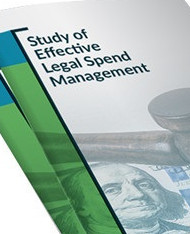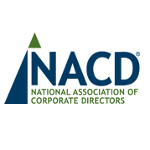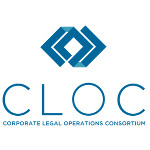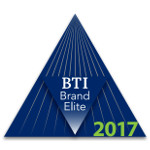By Lisa Spathis
The demands on today’s general counsel are many, complex, and unfortunately often in conflict with the wider business. Corporate counsels are their company’s traditional guardians, expected to protect the business against unnecessary risk from poorly thought out plans, regulators, unscrupulous partners, class-action lawyers, bad business processes and more. But with this traditional approach, business silos are as prevalent today as they were 20 years ago. As CEOs and business directors look to destroy them, the General Counsel becomes the fall guy, often getting the bad rap for inhibiting progress in areas of business development — an area criticized for not being taught in law schools today.
But in the modern age, General Counsels and their legal departments are increasingly expected to be business partners, collaborating with executives and functional experts in finance, HR and marketing to drive bottom-line results. Legal is being elevated into the C-Suite alongside other functional leaders like the Chief Financial Officer, Chief Human Resource Officer, Chief Strategy Officers, and others to help CEOs break apart silos that prevent rapid-business decisions. In this regard, General Counsels are also expected to become innovators—or at a minimum not preventing innovation—by helping their colleagues and IT test new ideas and technology at a rapid pace.
Technology Can Help Lawyers Lead the Way
The truth is, the corporate legal world has been much slower to embrace technology to help solve business problems and break down silos. Take the bread-and-butter tool for General Counsels and front-line legal team: the business contract. Even at some of the most sophisticated organizations, contracts are still created in Microsoft Word and set in stone through PDF documents. Email is the primary means of conveyance and inboxes function as contract storage system. In the case of PDFs, templates are still fixed and any change requires intervention by a lawyer—who must edit the source word-processing document before handing it back to the business user waiting for it. This lawyer, by the way, is usually juggling a wide range of other demands, from regulatory meetings to HR issues, and the last thing they have time for is deleting a sentence from the document.
In fact a few weeks back I was talking to a sales executive of a leading B2B services provider the other day, and he was lamenting at his contracting process. Not only did he have too many contracts for a similar solution, but these contracts were too long, too complex, and they were only available to his sales force in, of course, in PDF format. This is a company with 25,000 customers, both large and small businesses, and the sales force needs a more flexible contract than a PDF. Even small changes to the pre-approved contract require getting the attention of the shared-service legal team—something that can add days to the sales process.
These and thousands of other examples out there represent the opportunity facing legal leaders, to shift toward a business-driven mindset and embrace technology where they can exert the most influence. In this area, they can follow the lead of their functional-area colleagues. Human Resources departments in deploying HR systems, or sales teams in deploying CRM. Organizations are increasingly adopting Software-as-a-Service (SaaS) solutions in the cloud to rapidly adopt and create change in their organizations. For legal, the opportunity is ripe for making an impact on contract management by becoming the leaders of the digital transformation of contracts. This revolution is not just the effort of making contracts digital in a searchable repository, but in the revolution of enabling self-service workflows with legal counterparts for transforming business processes in the use of contract management lifecycle (CLM) solutions.
How corporate legal departments can adopt this innovation into their organizations can be exemplified in the transformation of everyday consumer technology that we often take for granted today.
The Airline Industry Example: Pioneers of the Self-Service Digital Contract
The airline industry issues tens of thousands of contracts to consumers every day in the form of airline tickets. There used to be a time, not that long ago, when every purchase had to assisted by an airline employee, and then validated in person by another airport-based employee. All tickets (aka contracts) were paper based and had to be received or validated by gate agents (think of them as front-line corporate attorneys). American Airlines rolled out its first self-service kiosk at airports about 15 years ago to speed up the pace of business for their consumers.
Today, most passengers manage their own ticketing without having to see a gate agent at all. To initiate a ticket, consumers open their smartphone and search for flights on their airline’s app. After selecting the flights, they can purchase a ticket with a few clicks from anywhere in the world with cell service or Wi-Fi. Most consumers opt for digital tickets, show it to security, and proceed to their gate.
For consumers who need assistance they can interact directly with employees. It’s not just airlines that have moved toward digitally enabled self-service business models. Today, just about everybody pays at the pump, and fills their car with gas. Zipcar, car2go and Maven have transformed the rental car business into a do-it-yourself experience. An article last year in the Harvard Business Review entitled How Self-Service Kiosks Are Changing Customer Behavior highlighted scores of other businesses that are embracing the self-service model—from McDonalds to your neighborhood bank. The goal is to remove what the author called the “social friction” that happens when people get involved in a transaction.
The Journey Towards Self-Service Contracting
The idea of self-service in CLM is still fairly new in the corporate world, but it’s rapidly starting to take hold, and the process is easy for lawyers to embrace and trust while preventing unnecessary bottlenecks for tens or hundreds of business users who need to get a contract executed.
Self-service contracting means giving employees the tools to initiate contracts (say laptops, desktops or mobile devices) with pre-approved language and the ability to make slight modifications to contracts or provide input on necessary areas, while still giving senior executives and legal teams the control they need. Business teams can do their jobs, while lawyers can efficiently review and validate contracts. Just as important, self-service contracting frees up corporate attorneys to do the more sophisticated, and strategic assignments that can drive business goals and break down business silos.
The ability to enable the automation is based on technology in the CLM system that allows the system to be pre-configured with contract templates that allow specified users to add or remove specific clauses based on their functional role in the organization. The logic in the system also is able to monitor the number of changes being made, where similar to the self-service kiosk of the airline ticket example, legal and other business executives can be notified and actively involved in the contract authoring / editing process of a specific business when too many changes are being made.
The benefits to the enabling self-service create a new empowerment for General Counsels, providing them an outlet to be more involved with the ability to transform the contract management process within their organization. As the overseer of contracts, General Counsels and their teams can be active participants in the deployment of CLM technology and begin playing the business partner role so crucial in the modern age. Moreover, through the active deployment of technology, the organization also can realize new efficiencies and controls in the process of initiating contract requests and approvals. Through the digitization of the contracts, organizations have a newfound level of insight and control that empowers users, but still providing legal the ability to protect the business against unnecessary risk through innovation.
But transitioning to self-service contracting is not something that can be done overnight with the flip of a switch. While the investment in time pays dividends in the future, there are key elements that need to be in place for self-service contracting to work. These include:
• Contract Templates. For a purchasing department, for example, this could mean creating templates for purchase contracts, statements of work, change orders, leasing agreements and technology purchase agreements. For sales this could mean creating bills of sale or SLAs. Other common agreements that are easy to template include mutual non-disclosure agreements.
• Editable language. A key to giving business leaders the ability to conduct business rapidly through contracts is identifying which clauses are sacrosanct and unchangeable, and which ones can be altered.
• Digital contract repository. One challenge with contracts is that they exist in many areas in a company including laptops, file cabinets and email inboxes. Lawyers and executives need a central repository where contracts and templates can be stored, secured and accessed.
• Mobile functionality. Business is done on the fly today—at all hours and locations—and business executives and lawyers alike need to be able to access documents from their mobile phones and tablets.
• Workflow Triggers. Self-service doesn’t mean going it alone. When it comes to infrequent contracting users, legal teams need to be available to provide assistance. Successful legal departments create automatic triggers—based on user edits—that require their review before final approval.
• Electronic signatures. There are multiple solutions on the market today that track the execution of contracts, enabling these documents to travel across companies and departments at digital speed.
For those of you who remember the first airline self-service, you’ll remember that it took time for users to embrace new technology. At first, even frequent fliers opted to see a gate agent to check-in and print a boarding pass. Today, frequent fliers pride themselves on their ability to zip through airports faster than anyone else. The challenge for today’s legal departments is to help their organizations implement and deploy the right digital contracting tools so that a business’s early adopters can move quickly—the rest of the company will follow.
Join Our LinkedIn Group












